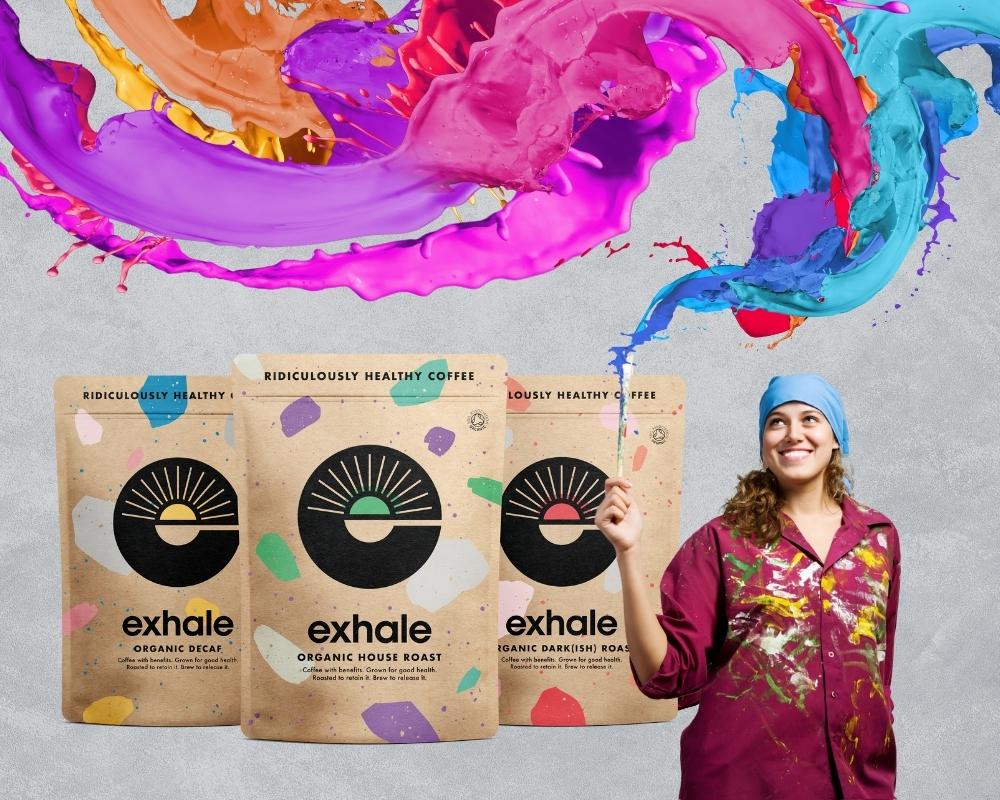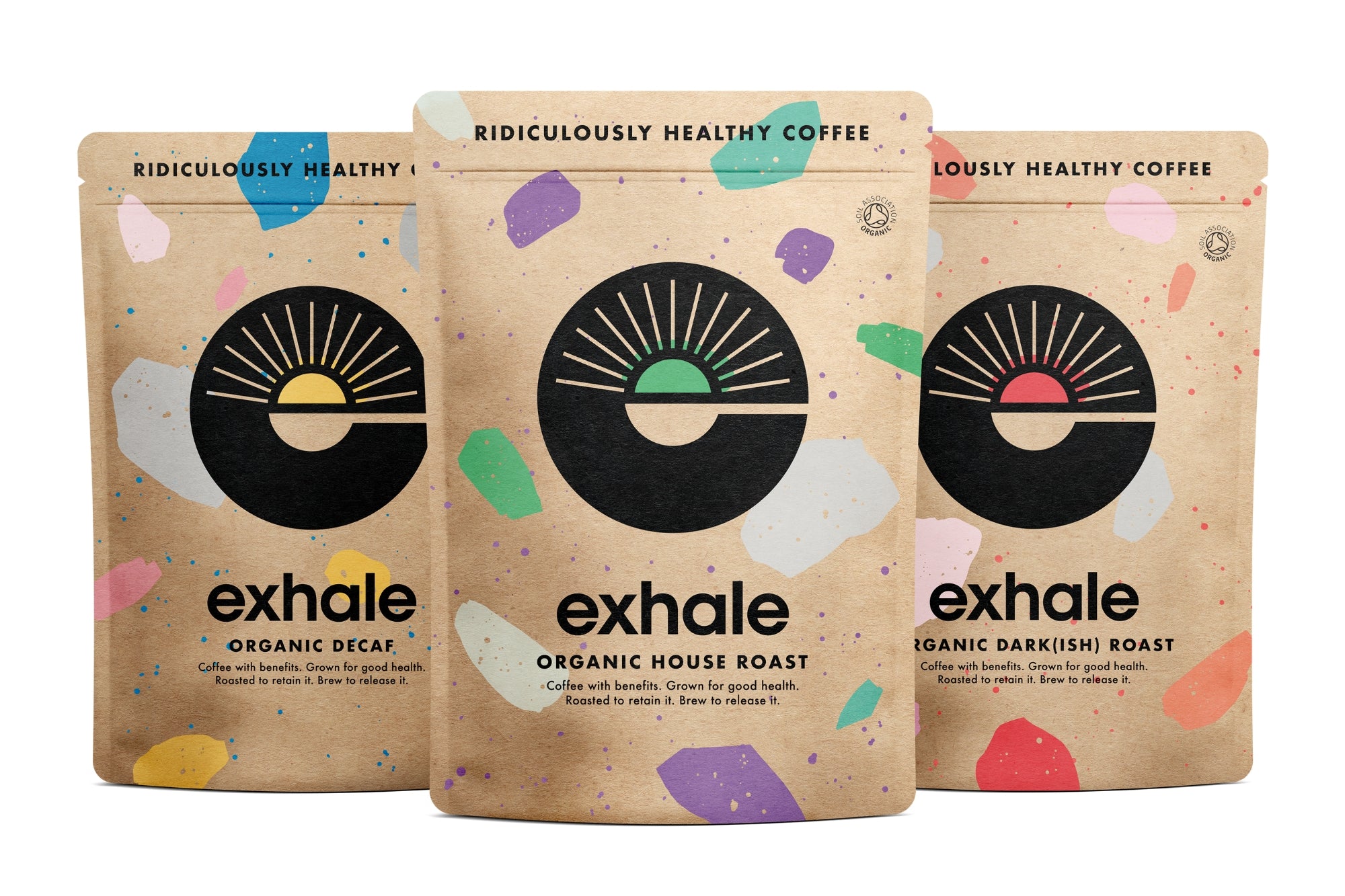For years, I used to believe that creativity was a mysterious and elusive quality that only a select few were blessed with. I thought that creative people were born with some sort of innate magic power that allowed them to come up with brilliant and innovative ideas effortlessly. My version of ‘creativity’ was at best limited to pretty awful imitations of famous pieces of art.
However, over time, I realised that this couldn't be further from the truth. I learned that there’s a creative bone in all of us, and a million ways you could express it, you’ve just got to find the right avenue and tools (and brew) for you.

In this blog, I discuss the two broad sides of the creative process, and explain how and when to use coffee to help you unlock your creative potential!
But first, why should you bother trying to be creative in the first place?!
The science-backed mental health benefits of being creative
Believe it or not, there are science-backed mental health benefits to being creative (1, 2, 3, 4, 5). Engaging in creative activities has been shown to have positive effects on various aspects of mental health, such as reducing symptoms of anxiety, depression, and stress, and improving mood, self-esteem, and overall well-being.
Studies have shown that engaging in creative activities, such as drawing, painting, music, writing, and crafts, can reduce levels of the stress hormone cortisol and increase levels of the neurotransmitter dopamine, which is associated with pleasure and reward. It can also help individuals to process and express their emotions, and can provide a sense of accomplishment and purpose.
One study found that participating in an art-based intervention program improved the mood and decreased anxiety levels of patients with major depression. And yet another found that engaging in creative activities improved the well-being of individuals with chronic pain.
Another I can really relate to is a study which demonstrated how 'visual art production' benefits 'psychological resilience in adulthood' i.e. stress resistance. What small business owner couldn't benefit from more of that (6)!
The creative process
The creative process involves two types of thinking: divergent thinking and convergent thinking.
Divergent thinking is a type of thinking that involves generating multiple possibilities or ideas. It's often associated with brainstorming or idea generation. In this phase, you're trying to come up with as many ideas as possible without worrying about whether they're good or bad. The goal is to think freely and come up with as many different ideas as possible.

Convergent thinking, on the other hand, involves narrowing down your options to select the best possible solution. In this phase, you're evaluating the ideas you generated during the divergent thinking phase and determining which ones have the most potential. You're looking for connections between ideas and trying to identify the best way forward.
Overall, the creative process often involves alternating between divergent and convergent thinking.
You start with divergent thinking to generate a lot of ideas, and then use convergent thinking to evaluate and action the best options.
Can coffee help creativity?
Many, many studies have shown that caffeine can help enhance alertness, vigilance, mood, concentration and attentional focus. All arguably important at different stages of the creative process.
However, there have also been studies on caffeine which specifically discuss it’s direct effects on creativity.
One study published in 2020 in the journal Consciousness and Cognition found that caffeine consumption can enhance convergent thinking (1). The study investigated the effect of drinking 200mg of caffeine on creative problem solving or convergent thinking. Incidentally, this is the exact amount in a cup of Exhale coffee when brewed to our instructions, read more in my article 'The Caffeine Content of Exhale Coffees'. They found that:
caffeine significantly enhanced problem-solving abilities’!
However, the same study also found that caffeine consumption did not enhance divergent thinking.

Another study published in 2015 in the International Review of Neurobiology explored the relationship between the use of all psychostimulants, including coffee, and creativity in the arts (2).
They discuss how caffeine can be useful in the evaluation and elaboration stage of the creative process by boosting convergent thinking. It gives the example of how
caffeine is ‘used especially by writers when putting words on paper’.
However, they also mention that it can diminish the divergent thinking phase.
Aside from caffeine’s direct cognitive effects on creativity, the café scene has long been associated with creativity and the arts, and for good reason. Cafes can play an important role in fostering creativity and supporting the arts, providing a space for inspiration, collaboration, networking, expression, and reflection.
Conclusion
In conclusion, coffee is best used during the convergent thinking phase of the creative process.
First comes the divergent thinking phase, where you generate lots of ideas. Next, in the convergent thinking phase, pop the kettle on and brew up a cup of your favourite healthy coffee. Then assess which is your best idea and crack on!

Whether that’s by putting pen to paper, decorating a cake, or picking up a saw and plane to turn some old roof joists into a beautiful recycled wooden bed 😜. They’re all wonderfully unique forms of creative expression!
**Many thanks to the Huberman Lab podcast on creativity for providing the inspiration to write this blog. Although the content and structure were the product of my own divergent thinking... and the writing of it the product of my own ridiculously healthy coffee **
Al x

- https://pubmed.ncbi.nlm.nih.gov/27695158/
- https://pubmed.ncbi.nlm.nih.gov/32744951/
- https://pubmed.ncbi.nlm.nih.gov/36096651/
- https://pubmed.ncbi.nlm.nih.gov/35871420/
- https://pubmed.ncbi.nlm.nih.gov/32073202/
- https://pubmed.ncbi.nlm.nih.gov/24983951/
- https://pubmed.ncbi.nlm.nih.gov/32086187/
- https://pubmed.ncbi.nlm.nih.gov/26070763/





1 comment
Nick Wild
An enjoyable blog on creativity. I enjoyed reading it and it reminded me of my art school days many moons ago. I studied furniture design and we were taught to brainstorm ideas and then to develope the best ideas we came up with, to end up with a final idea and to prototype it. Divergent and convergent thinking were essential.
I love coffee and have just signed up to receive your ‘Exhale’ coffee which I can’t wait to try.
Leave a comment
All comments are moderated before being published.
This site is protected by hCaptcha and the hCaptcha Privacy Policy and Terms of Service apply.